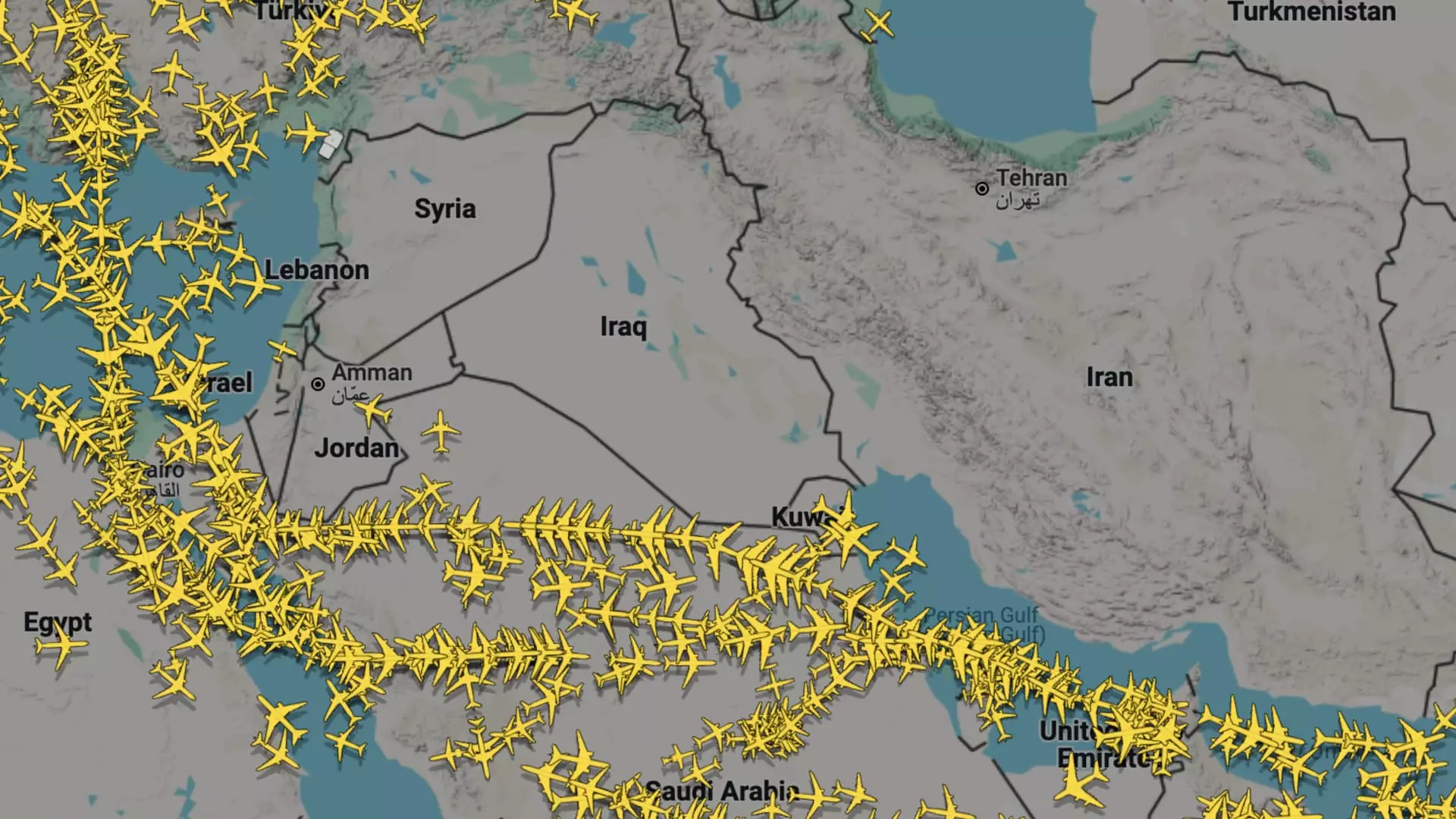The recent escalation of violence in the Middle East has sent shockwaves throughout the global airline industry, bringing headlines and travel plans to a screeching halt. With Israel’s missile strike on Iran and subsequent drone launches, carriers are left making unprecedented decisions that reflect the grim reality of today’s geopolitics. Major airlines, including Delta, United, and El Al, have suspended flights to and from Tel Aviv, leaving countless passengers stranded or uncertain about their travel fates. The immediate response by these air carriers demonstrates the pervasive sense of insecurity pervading the region, forcing them to take drastic measures in protecting both their crews and clients.
The Human Cost of Conflict
Disruption like this isn’t merely a business concern; it carries with it the human consequence of altered lives and disrupted plans. Families traveling for reunions, students pursuing education, and tourists seeking new adventures have all found their lives disrupted by events far beyond their control. El Al’s decision to suspend flights indefinitely is a stark reminder that, in the context of military incursions and threats of retaliation, personal ambitions can be dashed into oblivion. The visceral impact of this conflict crawls deeper than logistics; it affects bonds and aspirations.
Why Airspace Matters
The decision to close airspace is emblematic of a larger, more complex issue at play in the Middle East. The region has long been a volatile nexus for political, social, and military tensions, and the decision of airlines to avoid the airspace underscores the urgent need for diplomatic solutions. The indefinite flight suspensions coupled with increased operational costs signal a dire need for responsible governments to find a path forward. When airlines find it necessary to reroute flights, those costs hit not just their bottom lines but also the wallets of everyday people grappling with the fallout of this turmoil.
The Cycle of Avoidance
It’s framing the issues: when airlines reroute to avoid conflict zones, the global travel landscape becomes distorted. The burden of these decisions often shifts to the passengers, while the cabal of military conflicts—like a vicious cycle—continues unabated. Future planning becomes almost a luxury few can afford, especially amid a backdrop of ongoing uncertainty. Each canceled or diverted flight only serves to widen the chasm of distrust between nations, forcing travelers to ask whether they can ever really feel safe in the air again.
A Call for Center-Left Liberalism
Against this backdrop, there’s a pressing need for a cohesive and proactive stance from center-left liberals to advocate for peace in a region rife with conflict. Lobbying for diplomatic resolutions should supersede military actions if we are to break free from this destructive cycle. It’s time for international partners to engage in meaningful dialogue, redefining the context of safety in travel and working toward a future where air carriers no longer fear for the safety of their airspace. We must champion the resolution that protects human lives, which includes ensuring that people can navigate the skies without the looming dread of warfare dictating their journeys.


Leave a Reply